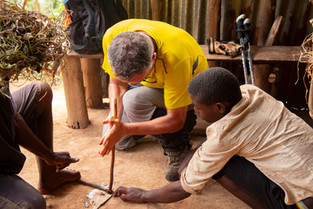We were prompted to write this blog after some feedback where readers showed concern over one of the destinations we were promoting on Facebook (“Reasons why you should consider Turkey as a potential holiday destination now”). It made us think about and reflect on the views expressed by the readers following Turkey’s withdrawal from the Council of Europe Convention on Preventing and Combating Violence Against Women and Domestic Violence better known as the Istanbul Convention.
Unfortunately one will most probably find issues in many countries which go contrary to one’s values for example human trafficking, child labour, modern day slavery, racism, wildlife poaching and trafficking, countries that still actively engage in whaling, deforestation, pollution, etc… the list is endless. If we were not to visit countries where we have issues with there would be very little of the world left to see.
You may feel that the best way to help is to boycott a country which goes against your way of thinking but travel is a wonderful thing and can result in numerous positive social and economic outcomes. Therefore perhaps one could face this dilemma by considering the idea of travelling with a conscience and becoming a “conscious traveller”.
Responsible and conscious travel is about the attitude you take and the choices you make. They are conscious decisions that enhance your life and the lives of the people (and animals) you meet along the way. In this way you are more likely to come away with a sense of fulfilment and enrichment.
Learn and be aware of both the pleasant and unpleasant past and present of destinations you intend to visit. Always remember that your knowledge will never be complete no matter how much you read. Consider that travel guides may leave out (intentionally or not) certain elements of history or culture that may not be so palatable (for example we recently read that when direct flights started between UK and South Carolina there was plenty of information about stays on beautiful plantations but little mention of the history of slavery in the area).
When you travel make an effort to engage with local people and guides, you can hear stories about their lives and the lives of their ancestors first-hand. Be selective where you shop and buy from local artisans. This helps to preserve traditions which are passed on from one generation to the next. These interactions give you a deeper connection with the country you are visiting and more often than not will be some of the moments you remember most.
You can seek out organisations and support programmes that are working to protect the welfare, culture and environment of where you may wish to visit and see if there are ways you can support them directly during or even after your visit.
For further reading on the subject we encourage you to read this section taken from the Intrepid Travel website:









Comentários